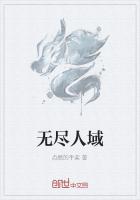He talked on. At any instant Mr. Schofield held himself ready to cough vehemently and shout, "More chicken," to drown out Penrod in case the fatal words again fell from those eloquent lips; and Mrs. Schofield and Margaret kept themselves prepared at all times to assist him. So passed a threatening meal, which Mrs. Schofield hurried, by every means with decency, to its conclusion. She felt that somehow they would all be safer out in the dark of the front porch, and led the way thither as soon as possible.
"No cigar, I thank you." Mr. Kinosling, establishing himself in a wicker chair beside Margaret, waved away her father's proffer. "I do not smoke. I have never tasted tobacco in any form." Mrs. Schofield was confirmed in her opinion that this would be an ideal son-in-law. Mr. Schofield was not so sure.
"No," said Mr. Kinosling. "No tobacco for me. No cigar, no pipe, no cigarette, no cheroot. For me, a book--a volume of poems, perhaps. Verses, rhymes, lines metrical and cadenced--those are my dissipation. Tennyson by preference: `Maud,' or `Idylls of the King'--poetry of the sound Victorian days; there is none later. Or Longfellow will rest me in a tired hour. Yes; for me, a book, a volume in the hand, held lightly between the fingers."
Mr. Kinosling looked pleasantly at his fingers as he spoke, waving his hand in a curving gesture which brought it into the light of a window faintly illumined from the interior of the house. Then he passed those graceful fingers over his hair, and turned toward Penrod, who was perched upon the railing in a dark corner.
"The evening is touched with a slight coolness," said Mr. Kinosling. "Perhaps I may request the little gentleman----"
"B'gr-r-RUFF!" coughed Mr. Schofield. "You'd better change your mind about a cigar."
"No, I thank you. I was about to request the lit----"
"DO try one," Margaret urged. "I'm sure papa's are nice ones. Do try----"
"No, I thank you. I remarked a slight coolness in the air, and my hat is in the hallway. I was about to request----"
"I'll get it for you," said Penrod suddenly.
"If you will be so good," said Mr. Kinosling. "It is a black bowler hat, little gentleman, and placed upon a table in the hall."
"I know where it is." Penrod entered the door, and a feeling of relief, mutually experienced, carried from one to another of his three relatives their interchanged congratulations that he had recovered his sanity.
"`The day is done, and the darkness,'" began Mr. Kinosling--and recited that poem entire. He followed it with "The Children's Hour," and after a pause, at the close, to allow his listeners time for a little reflection upon his rendition, he passed his handagain over his head, and called, in the direction of the doorway:
"I believe I will take my hat now, little gentleman."
"Here it is," said Penrod, unexpectedly climbing over the porch railing, in the other direction. His mother and father and Margaret had supposed him to be standing in the hallway out of deference, and because he thought it tactful not to interrupt the recitations. All of them remembered, later, that this supposed thoughtfulness on his part struck them as unnatural.
"Very good, little gentleman!" said Mr. Kinosling, and being somewhat chilled, placed the hat firmly upon his head, pulling it down as far as it would go. It had a pleasant warmth, which he noticed at once. The next instant, he noticed something else, a peculiar sensation of the scalp--a sensation which he was quite unable to define. He lifted his hand to take the hat off, and entered upon a strange experience: his hat seemed to have decided to remain where it was.
"Do you like Tennyson as much as Longfellow, Mr. Kinosling?" inquired Margaret.
"I--ah--I cannot say," he returned absently. "I--ah--each has his own--ugh! flavour and savour, each his--ah--ah----"
Struck by a strangeness in his tone, she peered at him curiously through the dusk. His outlines were indistinct, but she made out that his arms were, uplifted in a singular gesture. He seemed to be wrenching at his head.
"Is--is anything the matter?" she asked anxiously. "Mr. Kinosling, are you ill?"
"Not at--ugh!--all," he replied, in the same odd tone. "I--ah--I believe--UGH!"
He dropped his hands from his hat, and rose. His manner was slightly agitated. "I fear I may have taken a trifling--ah--cold. I should--ah--perhaps be--ah--better at home. I will--ah--say good-night."
At the steps, he instinctively lifted his hand to remove his hat, but did not do so, and, saying "Goodnight," again in a frigid voice, departed with visible stiffness from that house, to return no more.
"Well, of all----!" cried Mrs. Schofield, astounded. "What was the matter? He just went--like that!" She made a flurried gesture. "In heaven's name, Margaret, what DID you say to him?"
"_I_!" exclaimed Margaret indignantly. "Nothing! He just WENT!"
"Why, he didn't even take off his hat when he said good-night!" said Mrs. Schofield.
Margaret, who had crossed to the doorway, caught the ghost of a whisper behind her, where stood Penrod.
"YOU BET HE DIDN'T!"
He knew not that he was overheard.
A frightful suspicion flashed through Margaret's mind--a suspicion that Mr. Kinosling's hat would have to be either boiled off or shaved off. With growing horror she recalled Penrod's long absence when he went to bring the hat.
"Penrod," she cried, "let me see your hands!"
She had toiled at those hands herself late that afternoon, nearly scalding her own, but at last achieving a lily purity.
"Let me see your hands!"
She seized them.
Again they were tarred!















